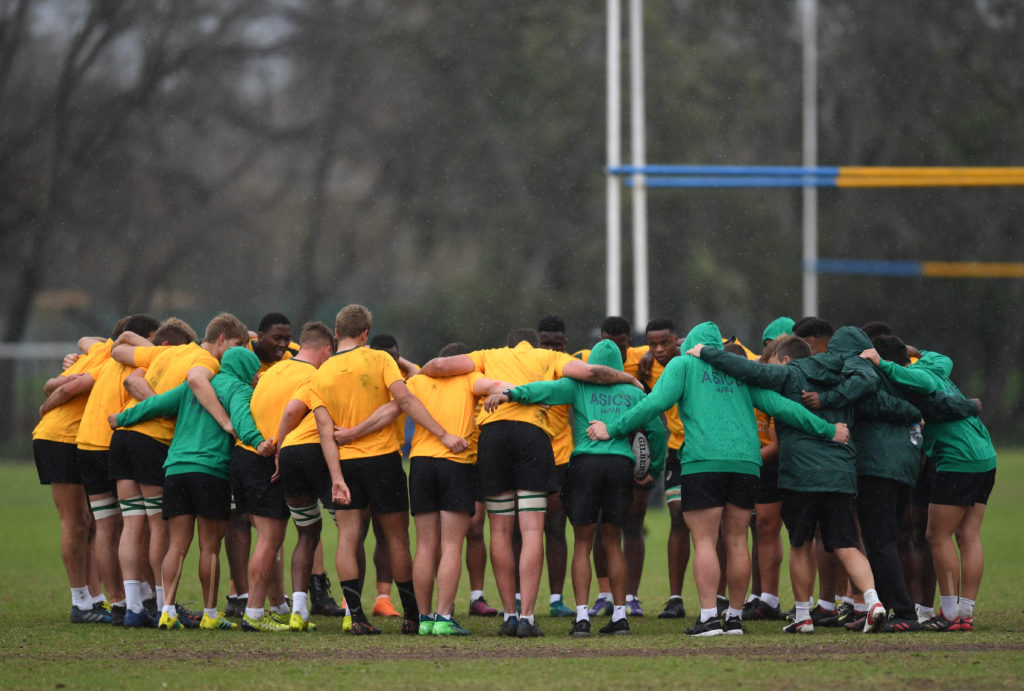Queen’s College 1st XV and SA Rugby EPD U17 coach Katleho Lynch on SA Rugby’s pathways, schoolboy player development and tapping into talent from rural areas.
Where are coaches getting it right and wrong with regard to developing our schoolboys and ensuring they are ready for professional rugby?
For me it is so important that skills take preference in developing our players. We need to get them conditioned and focus on the core skills like catching and passing. The breakdown and tackle technique is so vital for players in how they develop.
Coaching attack shape and identifying one ball-carrier to be the link in attack in each pod is not the right way for our players’ futures and development. They all need to catch and pass and have an all-round skill set within all positions and that prepares them for the future.
How do you decide which players are the best fit for your 1st XV?
It starts with the players who are the most committed to the team. Attendance at field sessions and regard for fellow players say a lot about a player, so it’s about getting players that will fit into the family and not self-gain. A popular phrase I use with my teams is good things happen to good people. By using that in my team environment the players understand exactly what I am looking for.
Pressure is one of the most important mental skills. As a mental coach it is one of the first skills I assess when it comes to selection for 1st XV rugby. Tackle technique is also a skill that players struggle with due to incorrect systems and different information. Once correct key factors are coached from a young age, players can always back their technique under any circumstance where they will not jeopardise their safety by having a poor technique.
I then start with selecting the spine, a hooker that can throw and win set piece, a lock that can run our lineouts and win us our first phase ball, an 8 that can link with the backs and a 9 and 10 who can control the game and drive us and lastly a 15 who can control defence and attack with purpose from the back. Your spine is important to your team’s success as these are the players that are key in driving your team in terms of set piece, how we play on the field and communication between players. If we had a look at all successful teams that win games and championships, they all have a strong spine.
ALSO READ: Erasmus hopes World Cup has lasting impact
Are we seeing enough talent come through the current SA Rugby pathways?
I think we are on track with that. There are young coaches who are doing their time at schoolboy level who have gone through a pathway that accelerates them to higher coaching and pro opportunities. If we look at coaches such as Mzwakhe Nkosi and Phiwe Nomlomo, with whom I have close relationships, they have gone through school systems, provincial systems, then SA School coaches and now are going professional, so we are definitely headed in the right direction and that makes it exciting for those who have the work ethic to go to the highest level and follow a pathway with opportunities.
It would be brilliant for junior coaches at unions to assist clubs and schools. For example, they could be assigned to mentor and assist school coaches. I have someone like Andre Tredoux who was coaching Shimlas U20 and U19 Currie Cup at Free State who was mentoring me and has been a huge help to my progress as a coach and a person.
‘The same for our top schoolboy players who are going through the EPD system. The U19 Currie Cup was a nice competition to develop players which has fallen away, so we need to be creative in terms of keeping players in a high-performance system from junior level. I am very excited about the future of SA rugby especially after the World Cup.
ALSO READ: Mapimpi – World Cup win a motivation for youth
What is and isn’t working with the current Elite Player Development system?
The EPD system is probably the most important part for players that are identified from an early age. The work that is done there is immaculate and prepares those players for SA Schools and the Junior Boks. We focus on position-specific skills, team skills, mental skills, strength and conditioning to give all of those players a head start.
If you had to have a look at how many players are coming through to play pro rugby, Super Rugby and for the Boks, you notice that they come through that system. There are times when we expect so much more from players who have been earmarked only to find that they are not working hard enough and are OK with low standards and that is something that will not be tolerated in a high-performance environment.
However, the system is very healthy and producing good things for SA rugby’s future Boks and coaches. Louis Koen, Herman Masimla and Nico Serfontein are the brains behind those programmes and deserve a lot of praise for all their work behind the scenes to make these camps a continuous success.
How can a better pathway for players from rural areas be developed?
It’s important that there are designated people who are in charge of the rural areas. This is something that has already been discussed – now it’s just about quality implementation and maintenance of systems. They then ensure that those players are not getting lost by providing quality coaching to them, ensuring they have equipment with which to train and, if possible, gym facilities.
By doing the above, monitoring and continuous intervention can take place to track progress or regress with players. Also, there are many quality black players playing in the wrong positions. Going forward we need to spot those shortcomings early and then move the player to the correct position. There is so much opportunity for us to tap into in rural areas and build a strong quality system. Can you just imagine how many other Makazole Mapimpis are out there, who are waiting to win a World Cup but just need guidance and structures that will take them to the next level?
Lynch is a school counsellor and 1st XV coach at Queen’s College in the Eastern Cape. He has previously coached the University of Johannesburg U20 side and spent two years as 1st XV coach at St Benedict’s and is involved with SA Rugby’s Elite Player Development system. He graduated from UJ with degrees in both Sports Psychology and Sport Science and has an IRB Level 2 coaching certificate.
Interview by Dylan Jack
Photo: Ashley Vlotman/Gallo Images





